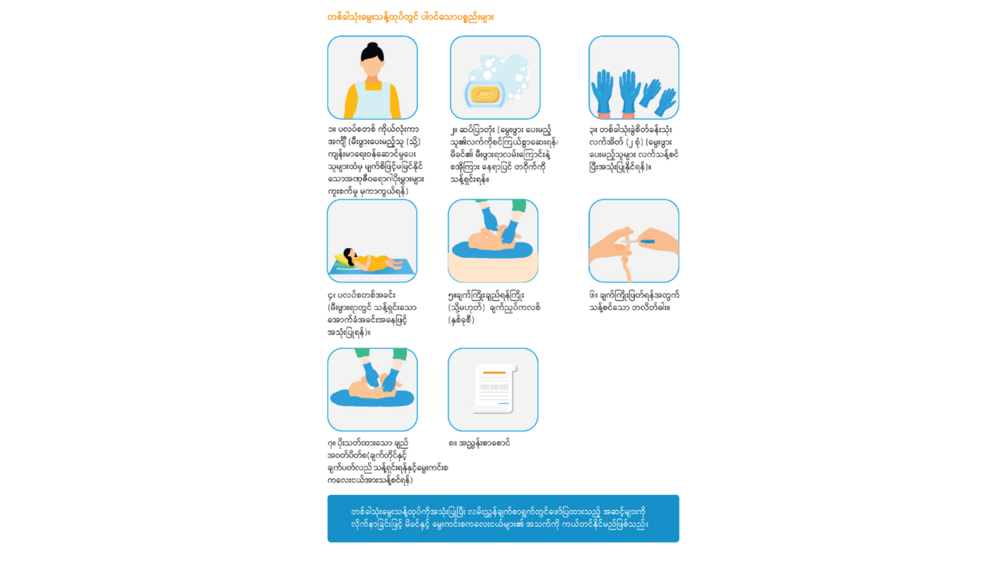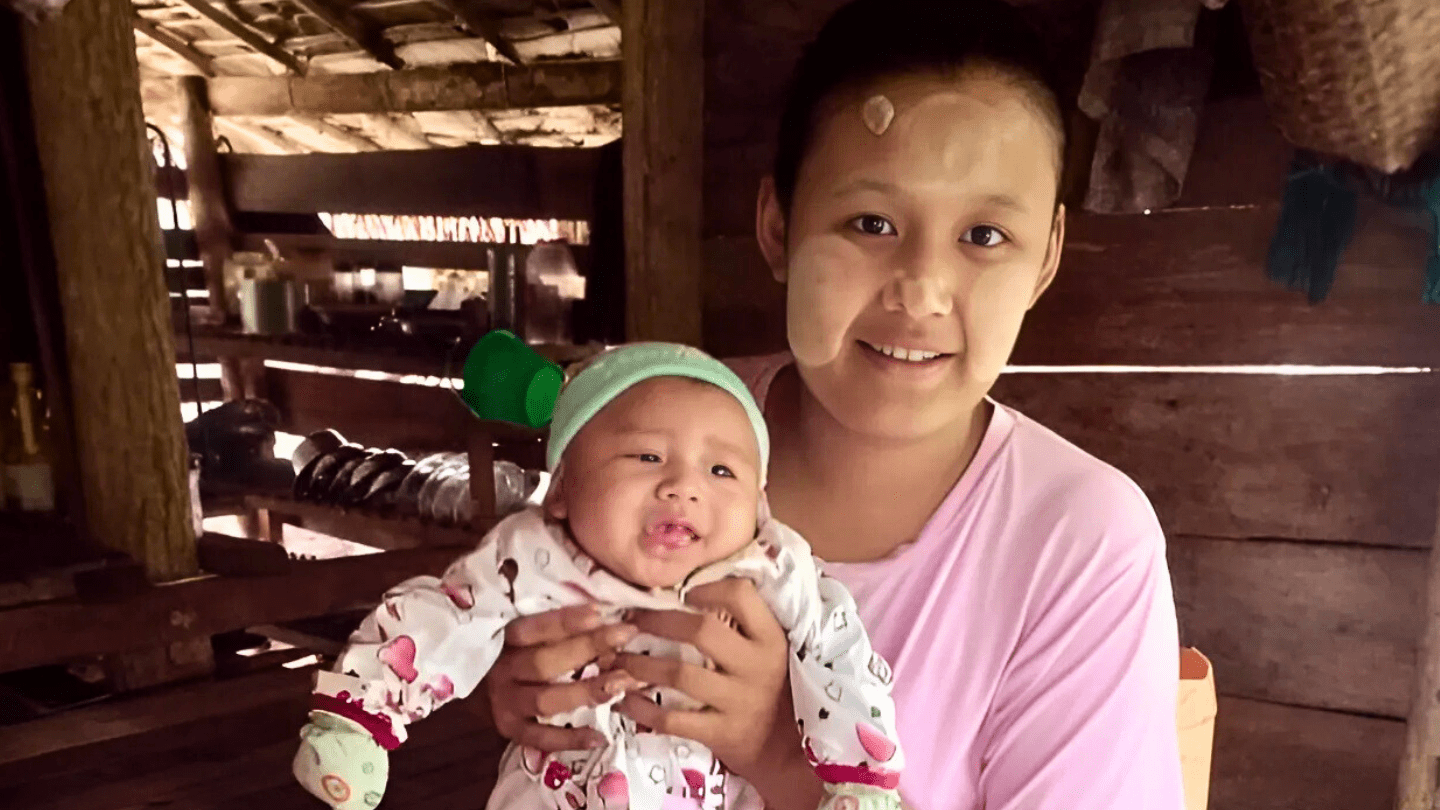As conflict surged in the Southeast region of Myanmar, families from those affected areas were forced to abandon their homes. Among those fleeing was 24-year-old Soe, pregnant and uncertain of what the future would bring.
“We fled with nothing,” Soe recalled. “Just the clothes on our backs and fear in our hearts.”
The monastery became a temporary sanctuary for many displaced families. For pregnant women like Soe, however, safety was only part of the struggle—delivering a baby amidst displacement, without any supplies or medical care, felt almost impossible.
She was not alone. Across Myanmar, the humanitarian crisis continues to deepen. According to the Myanmar Humanitarian Needs and Response Plan (HNRP) 2025, nearly 20 million people need humanitarian assistance—more than 10.4 million of them are women and girls.
The AFXB Myanmar mobile team arrived at the displacement camp. Amidst the challenges, the team identified pregnant women, including Soe, for maternal health care and provided them with Clean Delivery Kits (CDK) to ensure safe births in makeshift settings. The kits can help to mitigate the risks of infection by providing supplies to create a safe and clean setting for delivery.

That very day, Soe went into labour.
“My due date was near, and the contractions had started. I didn’t know what to do,” she said, clutching her belly in pain as the health team arrived. They helped her, explained the process, and prepared her family with emergency maternal care guidance.
On that night, a local midwife was urgently called and arrived just in time. With the help of the UNFPA-provided kit—containing a sterile sheet, blade, soap, gloves, and baby clothing—Soe delivered a healthy baby girl under candlelight.
Tears streamed down her face as she wrapped her newborn in the clothes from the CDK.
Looking at her daughter, Soe whispered with emotion,
“I can’t express my gratitude enough,” and she continued. “The midwife and these kits saved us—both me and my baby. In our local tradition, people believe preparing baby items before birth brings bad luck. But in this crisis and displacement, only a thoughtful support of these essential kits gives us hope and safety.”
In conflict-affected areas across Myanmar, where health services are scarce and cultural traditions shape maternal care, a skilled midwife and a single delivery kit can mean the difference between life and death.
In 2024 alone, UNFPA distributed over 75,000 Clean Delivery Kits and Dignity Kits across Myanmar, reaching over 380,000 women and girls like Soe. But the needs remain vast—and urgent.
With only 8.5% of the 2025 Humanitarian Needs Response Plan funded and humanitarian partners facing immense constraints, the ability to continue providing life-saving care is hanging by a thread. More support is needed to reach women and girls in fear and communities in ongoing humanitarian crises.
UNFPA, the United Nations sexual and reproductive health agency, is working with partners across Myanmar to ensure that women and girls affected by humanitarian crises continue to receive lifesaving maternal health support.
Each Clean Delivery Kit (CDK) contains essential items to ensure a safe and hygienic childbirth even in the most basic settings:
-
A plastic apron to prevent microbial transmission from the birth attendant
-
Soap for cleaning the birth attendant’s hands and the mother’s perineum
-
Two pairs of disposable surgical gloves for safe delivery practices
-
A plastic sheet for a clean delivery surface
-
Two umbilical cord clamps/threads to tie the cord safely
-
A sterile surgical blade to cut the umbilical cord
-
Sterile cotton cloth to clean the baby and the umbilical area
-
A clear instruction sheet to guide birth attendants or caregivers


